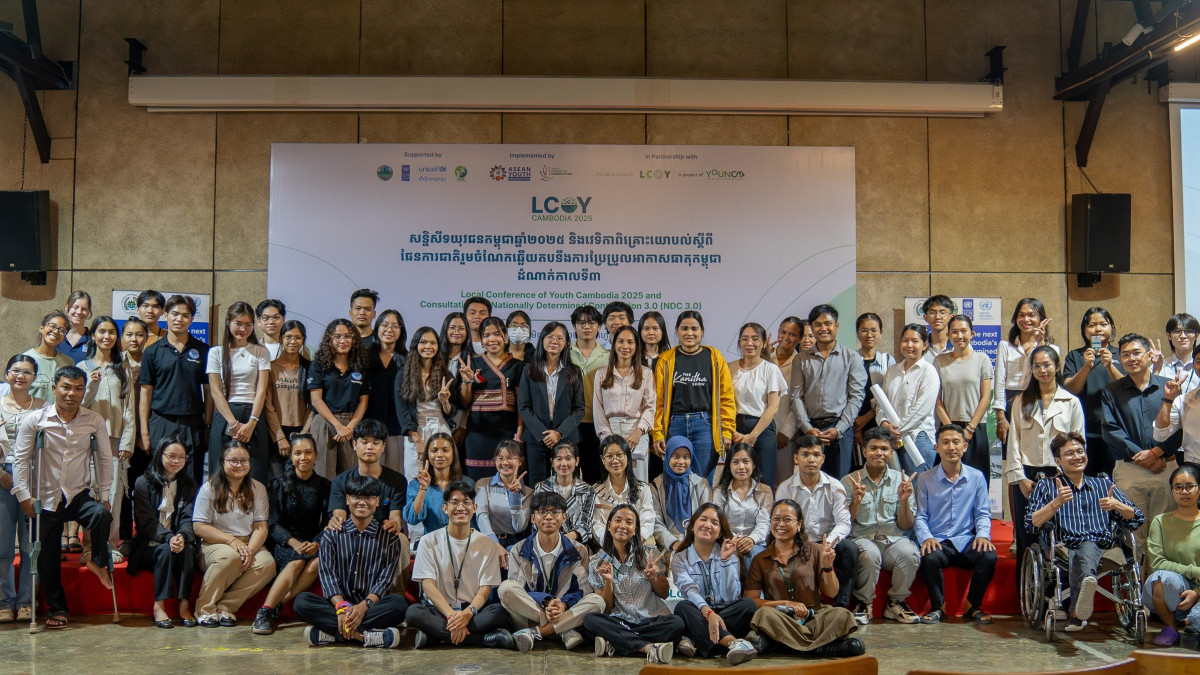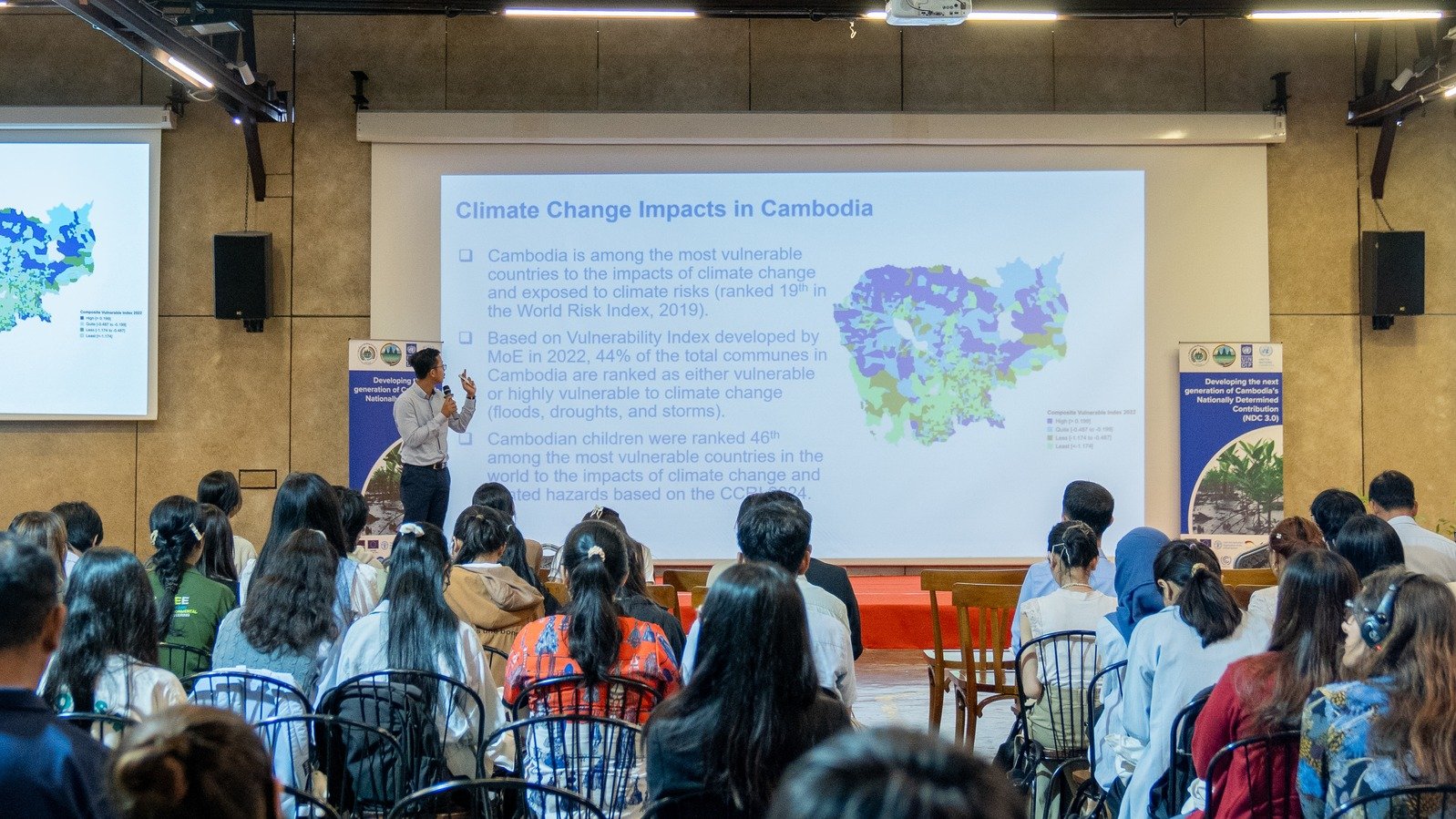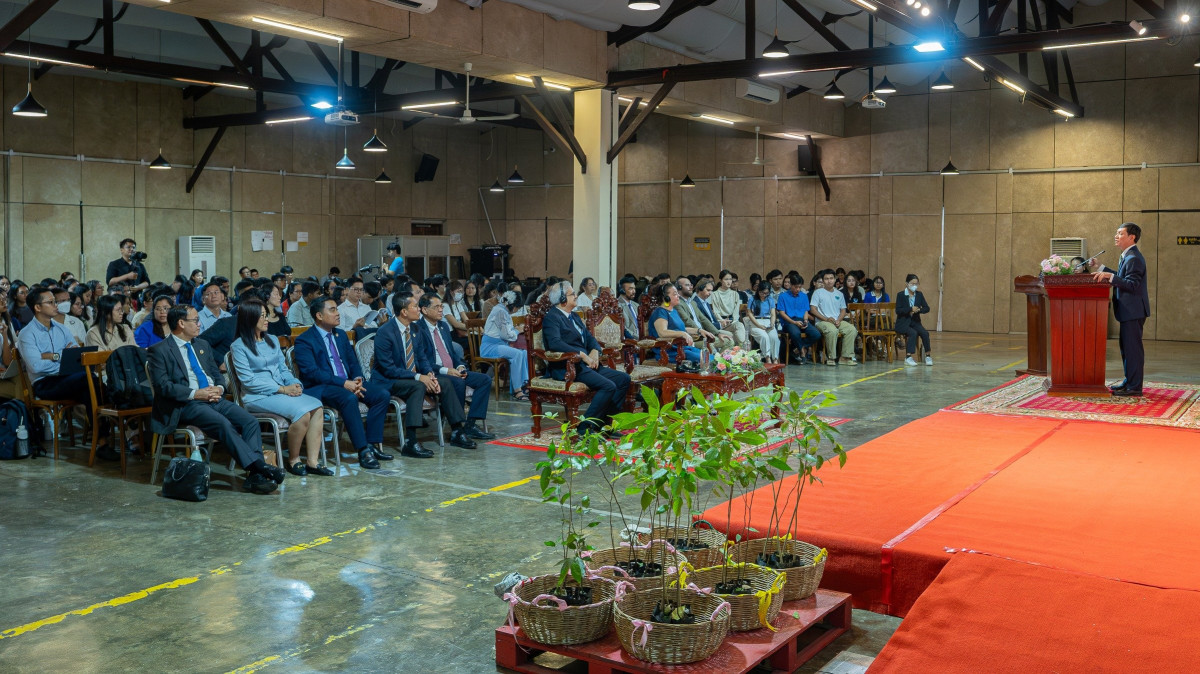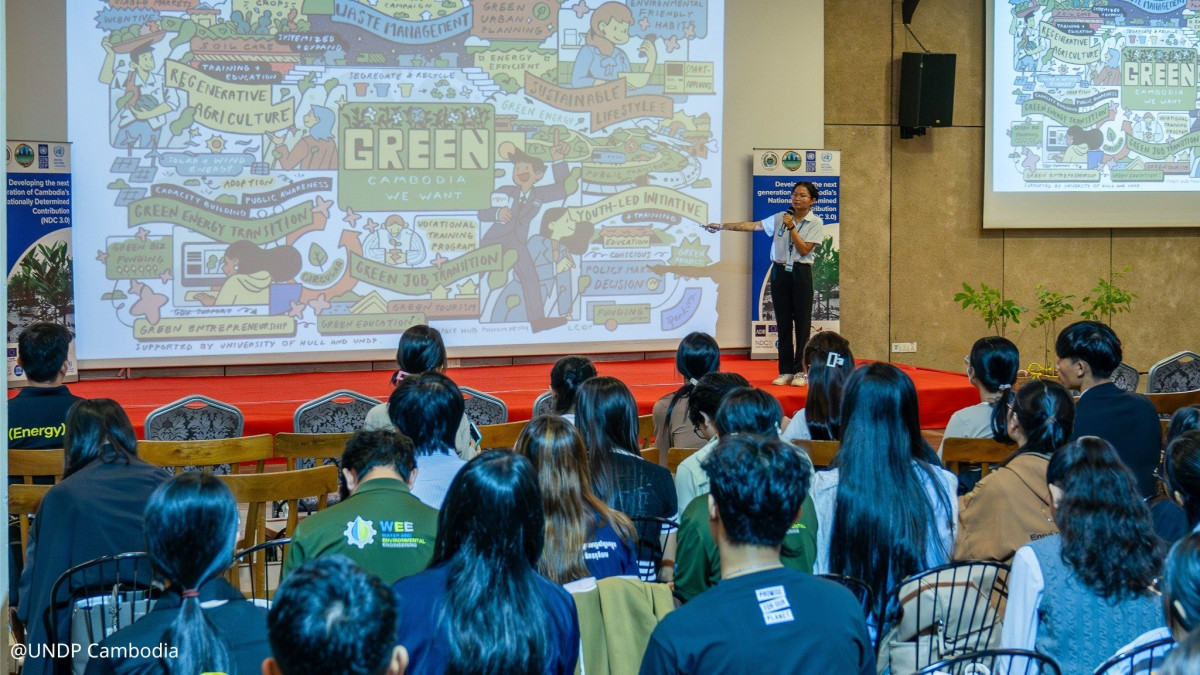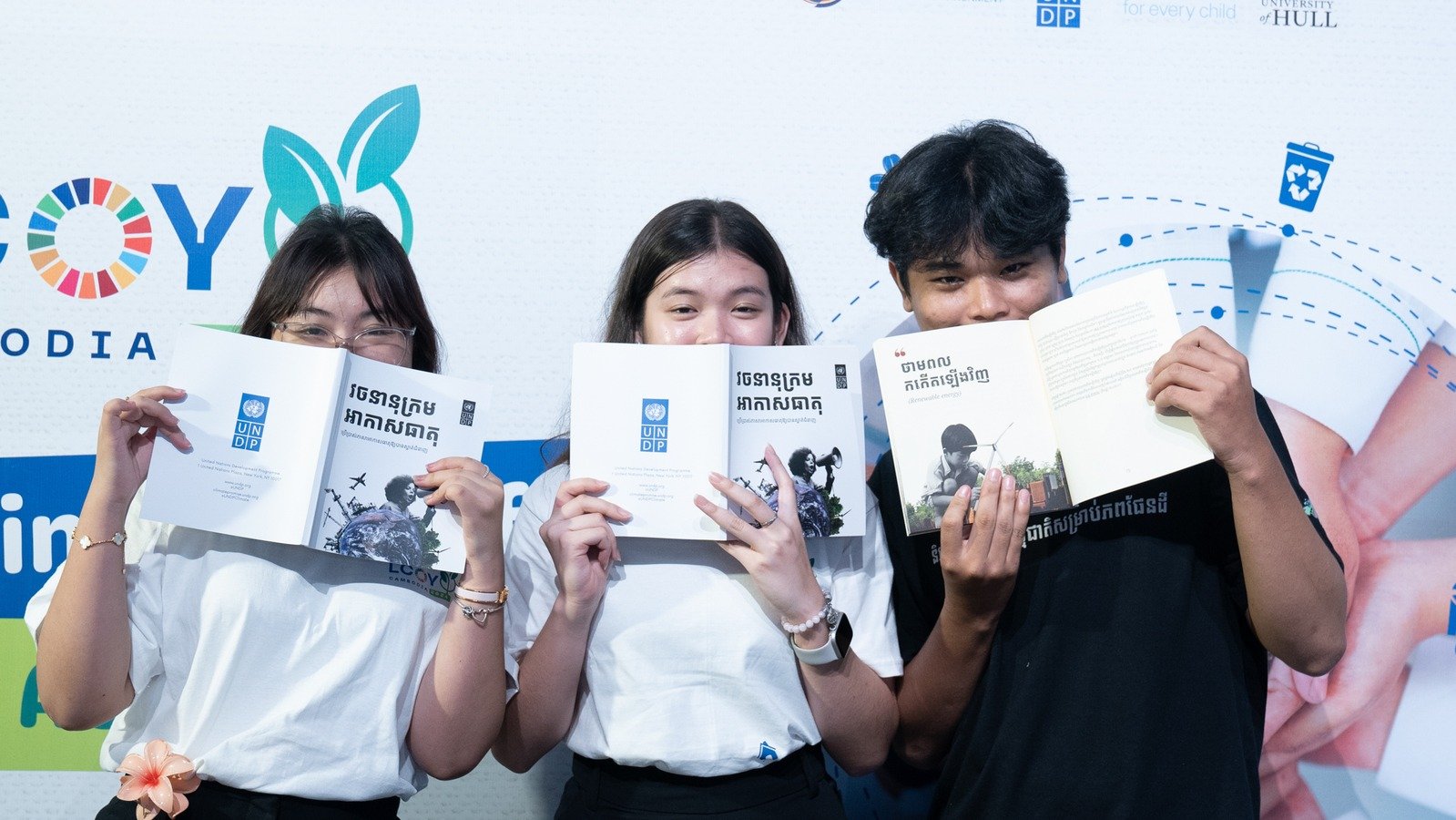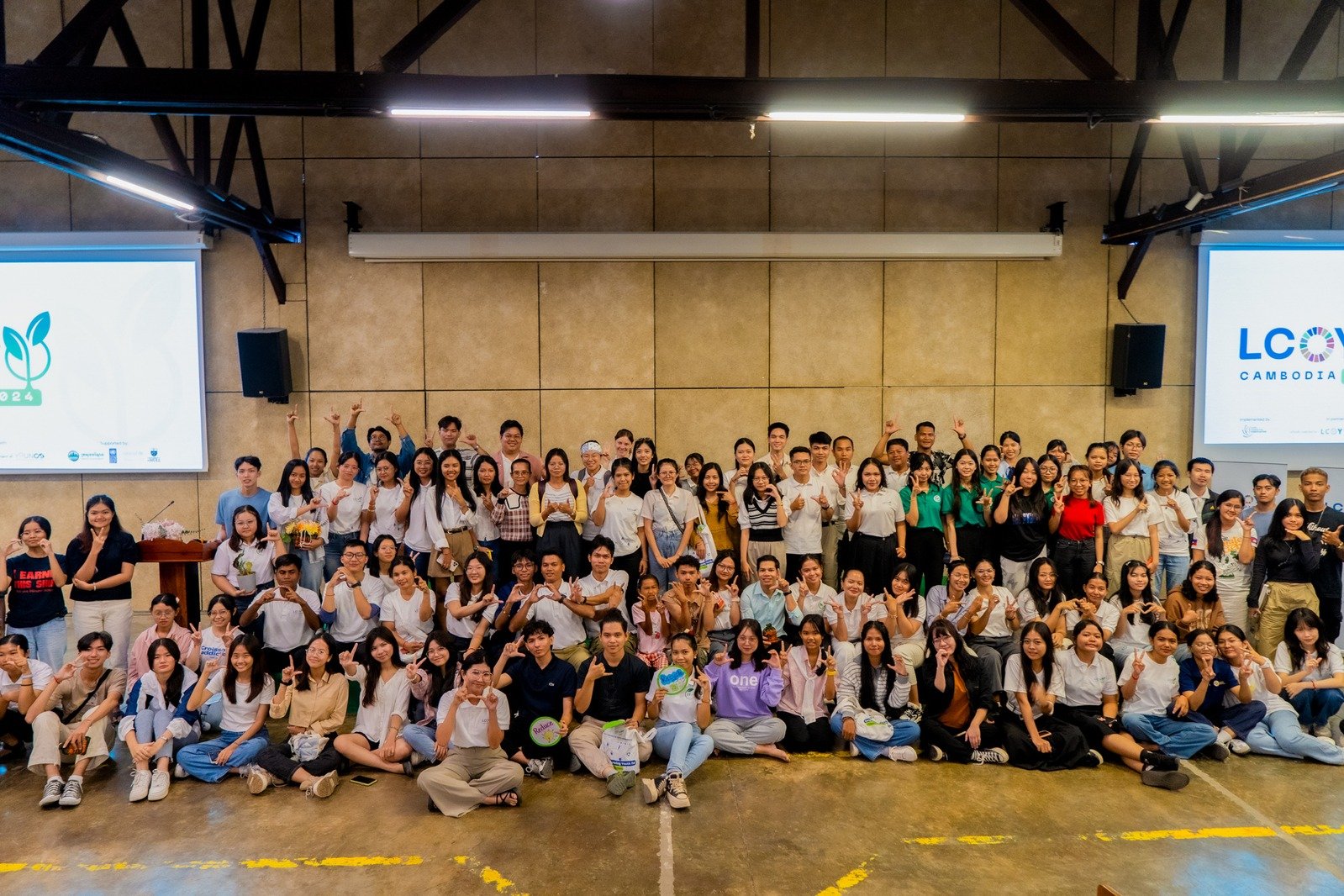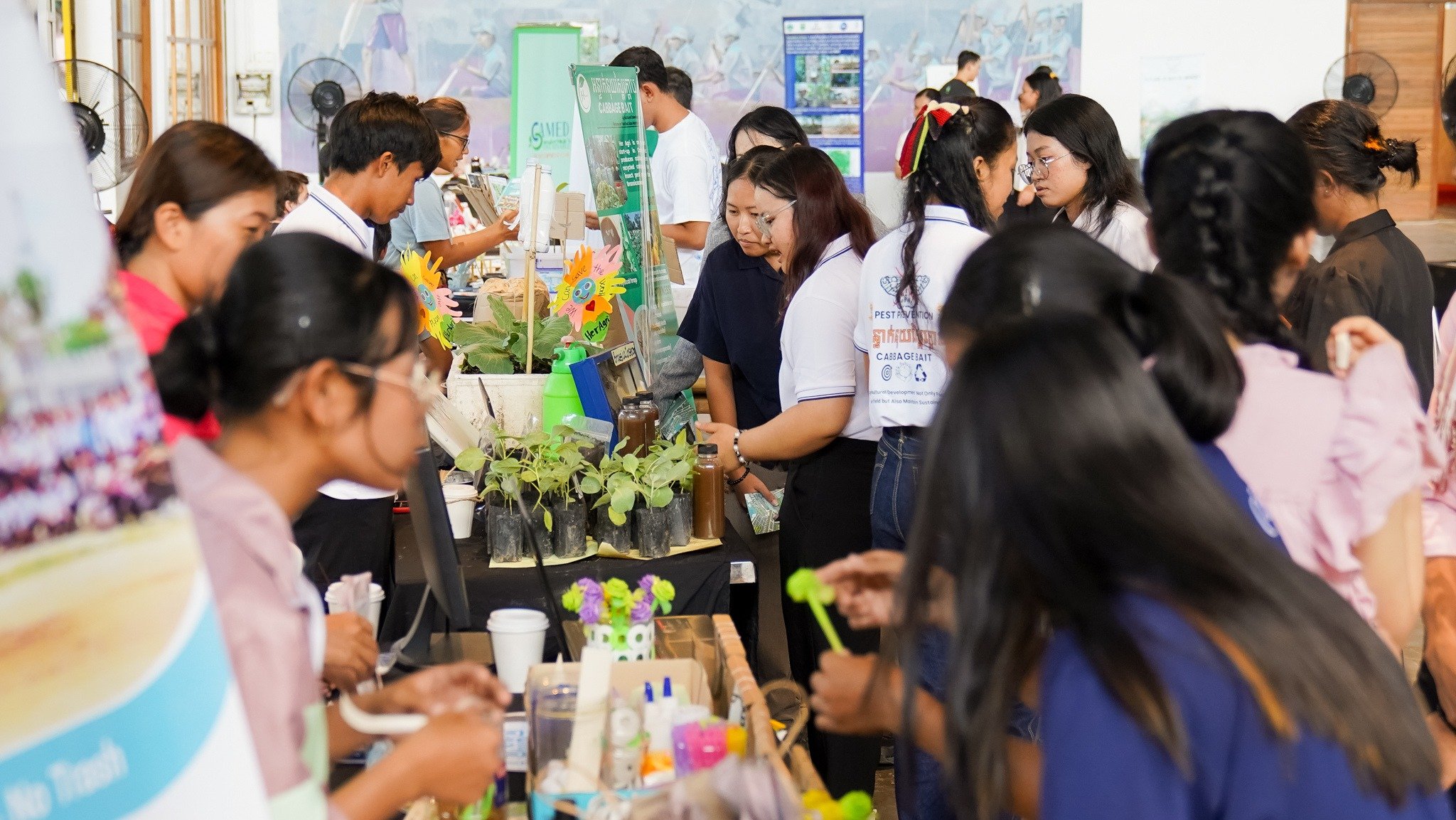Cambodian Youth Demand Climate Justice and Bold Action at NDC 3.0 Local Conference of Youth 2025
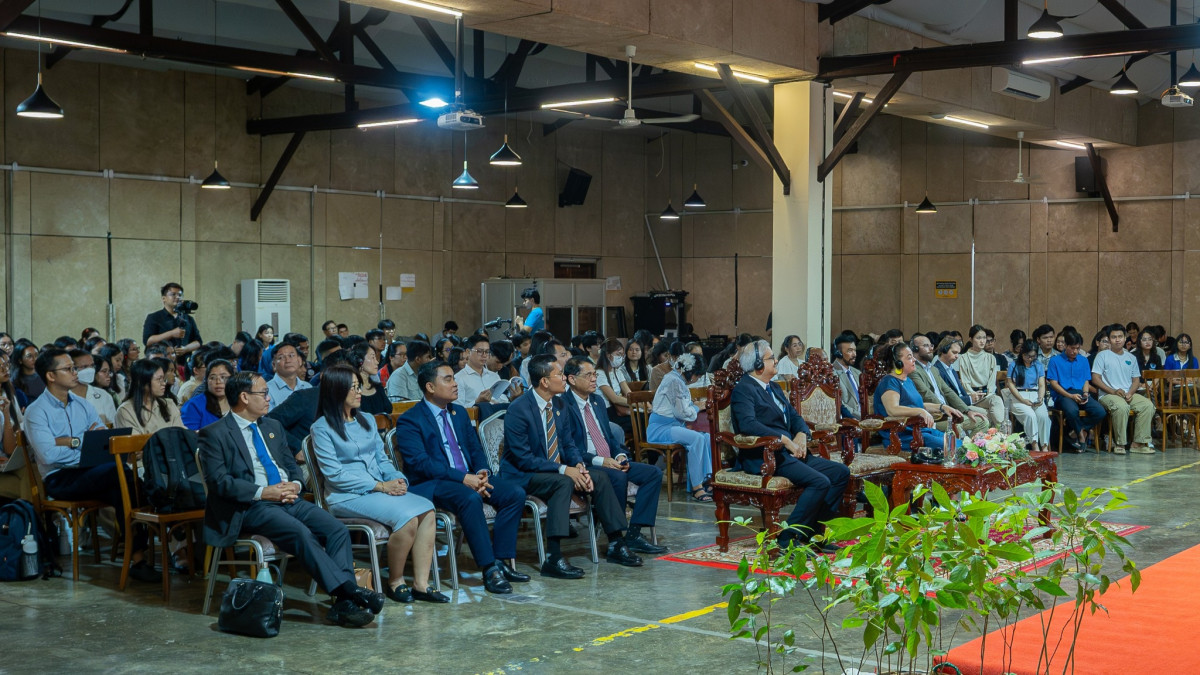
Phnom Penh, Cambodia – June 3, 2025 More than a hundred passionate Cambodian youth gathered in Phnom Penh for the Local Conference of Youth (LCOY) and National Consultation on Cambodia’s Third Nationally Determined Contribution (NDC 3.0). Held in parallel with World Environment Day, this pivotal gathering provided a platform for young people to raise their voices on pressing environmental and social issues and propose concrete recommendations to shape Cambodia’s climate policy and action.
At the heart of the gathering was a strong call for climate justice, intergenerational equity, and inclusive solutions that reflect the lived realities of children and youth—especially those from marginalized backgrounds affected by gender inequality, disability, and ethnic discrimination.
We, Cambodian youth, gathered on 3rd June, 2025 for the annual Local Conference of Youth and Consultation on the third Nationally Determined Contribution (NDC 3.0) in Phnom Penh, Cambodia.
In this pivotal gathering, we HIGHLIGHT various pressing issues affecting our communities and our environment, recognizing the urgent need for collective actions and innovative solutions.
RECALL Cambodia’s commitment and efforts to advance the Sustainable Development Goals (SDGs) of the 2030 Agenda Cambodia’s Long-Term Strategy for Carbon Neutrally (LTS4CN), Circular Strategy on Environment 2023-2028, Nationally Determined Contribution (NDC) as well as the pertinent multilateral agreements in the fields of environment, climate change, and circular economy;
EMPHASIZING the urgent need for accelerated climate action, we the youth participants of LCOY Cambodia 2025, unite our voices to address the global climate crisis emphasizing the serious impact to children and young people. We recognize that the current pace of climate action is not aligned with the scientific evidence and the needs of young people with their gender, disability and ethnicity were not applied, even youth are among the most affected by the decisions made today. Our generation demands immediate, ambitious, and conclusive solutions that ensure climate justice for all;
ACKNOWLEDGING 1) the importance of the Paris Agreement and the Nationally Determined Contributions (NDCs) as essential tools to combat climate change and 2) the Royal Government of Cambodia ratified the Rights of the Child (CRC) in 1992 and its Article 12 articulates the right of children to be heard in matters that affect them, we call for stronger integration of youth perspectives into climate policies. We stress that youth are not merely stakeholders, but active participants and agents of change, innovation, and accountability in the implementation and monitoring of climate commitments;
FULLY AFFIRM the right of present and future generations to participation and to a safe, clean, healthy, and sustainable environment, we commit to advancing climate action through collective efforts, informed advocacy, and youth-led-initiatives. Our experiences, creativity, and resilience are assets that must be recognized and supported through inclusive mechanisms and genuine intergenerational partnerships;
INTRODUCING the key themes of our discussion and priorities, this youth statement reflects our, as Cambodian children and young people including the vulnerables by their gender, disability, and ethnicity, positions on climate mitigation, adaptation, WASH and Health, Disaster and Climate Risk Management, Education, Information & Awareness Raising, Energy, Agriculture and Participation throughout. Each section outlines our recommendations, calls to action, grounded in lived experiences and aligned with global climate objectives;
REAFFIRMING our dedication to climate justice, equity, resilience, and sustainable development, we, on behalf of all Cambodian children and young people, urge national governments, international organizations, and all stakeholders to act with integrity and urgency. We stand ready to collaborate, co-create, and contribute toward a climate-resilient future-for all, and especially for the most vulnerable among us;
DO HEREBY AGREE to recommend the following:
- Advancing Cambodia’s Energy Transition
To achieve net-zero emissions and enhance energy resilience, Cambodia must accelerate the transition to renewable energy while ensuring accessibility and affordability for all.
- Renewable Energy Expansion & Access
- Prioritize rural electrification with solar & wind power: Increase access to clean energy by installing solar panels in rural areas, reducing costs through on-grid systems
- Encourage energy security through local resources: Minimize reliance on imported energy by extracting resources sustainably and developing domestic renewable energy industries
- Create public-private partnerships for renewable energy research: Ensure technological advancements in solar and wind power, promoting affordable and effective adoption
- Strengthening Low-Carbon Transport Infrastructure
- Expand EV charging stations across Cambodia: Encourage electric vehicle adoption through strategic placement of public charging infrastructure
- Provide financial incentives for EV usage: Reduce tariffs and offer benefits such as free charging points to accelerate public transition to electric mobility
- Improve public transportation systems: Expand efficient, eco-friendly transportation networks in both urban and rural areas
- Enhancing Energy Governance & Public Engagement
- Increase public education on clean energy and energy efficiency: Utilize social media, workshops, and nationwide campaigns to spread awareness on energy efficiency and sustainable energy sources.
- Implement stricter energy efficiency regulations: Introduce mandatory energy standards for appliances and incentivize companies to adopt low-energy technologies
- Develop green job opportunities in the energy sector: Strengthen youth training programs in renewable energy industries and support career pathways for young professionals
- Agriculture
Climate-resilient and gender-responsive food systems are essential to ensuring livelihoods while reducing agricultural emissions and protecting biodiversity.
- Building Climate-Resilient Agricultural Practices
- Prioritize climate-resistant crops: Increase production of drought-resistant rice and other staple crops while ensuring equitable pricing for farmers
- Support sustainable farming transitions: Provide financial assistance for farmers shifting from unsustainable practices to models that preserve biodiversity
- Create agricultural innovation hubs: Connect farmers with researchers to develop climate-smart farming techniques, leveraging data-driven insights
- Recommend engaging relevant stakeholders, including female and male farmers, exporters and importers of products such as fertilizers, to encourage alignment with sustainable and climate-resilient practices
- Enhancing Gender Responsiveness, Transparency & Accountability in Agriculture
- Develop open-data platforms for farmers: Ensure free access to climate and crop data, allowing informed decisions on agricultural practices
- Empower local governance for food security management: Decentralize monitoring efforts to track food distribution, ensuring fair access and preventing monopolization by corporations
- Encourage participation of female farmers and youth in climate-smart agriculture: Create gender-responsive, digital and face-to-face youth-led campaigns to spread awareness and innovation in farming without leaving female farmers who work in informal agriculture
- Disaster and Climate Risk Management
Cambodia must fortify its disaster preparedness, environmental resilience, and climate governance while prioritizing the most vulnerable groups of people and communities.
- Improving Early Warning Systems & Disaster Preparedness
- Expand mobile-based disaster alerts: Ensure simple SMS warnings reach remote communities without internet access, enhancing disaster response efficiency while exploring other methodologies to reach people without mobile devices
- Strengthen local disaster preparedness: Equip grassroots workers, teachers, caregivers, and community leaders with climate risk knowledge and mitigation strategies
- Enhance drainage systems to prevent urban flooding: Conducting technical studies on flood prevention infrastructure, stormwater flow, mapping flood hotspots, and incorporating nature-based solutions such as rain gardens and green canals to safeguard cities from extreme rainfall. Moreover, strengthening coordination between local authorities and communities is also essential to ensure regular maintenance and reduce blockages caused by waste.
- Advancing Biodiversity Conservation & Indigenous Knowledge
- Protect traditional ecological knowledge: Recognize and integrate indigenous forecasting techniques and conservation methods into policy frameworks
- Implement stricter deforestation regulations: Enforce forest conservation laws and penalize illegal logging while investing in large-scale reforestation programs
- Expand eco-friendly waste management initiatives: Develop waste-to-energy technologies and strengthen landfill regulation to prevent environmental degradation
- Encourage the government to prioritize inclusive disaster and climate risk management: by strengthening communication channels between local authorities and indigenous communities, and by improving access to appropriate technologies for early warning, preparedness, and response. Special attention should be given to ensuring that dam development projects do not disproportionately impact indigenous peoples, whose traditional knowledge and livelihoods are often overlooked
- Health and WASH
Climate change affects public health and sanitation access, exacerbating existing inequalities. Cambodia must ensure universal accessibility in WASH policies.
- Inclusive WASH Infrastructure & Safe Water Access
- Expand clean water and sanitation access in rural areas: Prioritize water treatment facilities in underserved communities, ensuring nationwide equity
- Ensure gender-responsive and disability-friendly WASH facilities: Sanitation infrastructure including in schools must be designed for accessibility, respecting the dignity of all individuals, including persons with disabilities and girls’ and women’s menstrual health and hygiene
- Develop climate-resilient sanitation technologies: Invest in circular economy innovations that optimize water usage and recycling in sanitation
- Recommend that water and sanitation initiatives prioritize the needs of vulnerable groups, including people with disabilities and LGBTIQ+ individuals, especially women and girls by ensuring equitable access to clean water and safe hygiene facilities, in order to strengthen climate resilience and uphold inclusive development
- Recommend that the Royal Government of Cambodia and relevant stakeholders: create a more enabling environment for investment in sewerage and piped water infrastructure, while also promoting students’ capacity building and engagement through internship and employment opportunities in related fields
- Encourage the Royal Government of Cambodia, relevant ministries, and stakeholders to take a more active role in promoting investment in sewerage and piped water infrastructure. Increased investment will not only improve public health and urban living standards, but also create valuable internship and employment opportunities for students in related fields to contribute meaningfully to their community
- Invest in the development and implementation of efficient and cost-effective black wastewater treatment systems to enhance sanitation, protect public health, and support environmental sustainability. Prioritizing the installation of affordable black wastewater treatment systems in public facilities like schools and health centers, as well as in riverside and floating communities. Decentralized solutions should be promoted, with support for maintenance and local capacity building.
- Public Health Resilience Against Climate Change
- Strengthen food safety regulations: Eliminate hazardous chemical imports and support sustainable food sourcing for better public health outcomes
- Increase climate health education: Schools, TVET centers and sub-national offices must integrate knowledge on climate-related health risks, nutrition, and disease prevention to students, sub-national officials and community leaders and members
- Build youth-led health monitoring initiatives: Establish monitoring groups to track pollution-related health hazards and collaborate with regulatory agencies by providing training on the relevant knowledge and tools to track health issues related to water quality and environment, and by developing and submitting regular reports on findings to local health departments and environmental authorities for coordinated action.
- Empowering Youth in Climate-Health Solutions
- Provide youth with climate related knowledge and skills-building and promote youth-led climate and/or health related projects and enterprises: Provide grants for youth innovators working on circular economy solutions in waste management
- Enhance youth knowledge, skills and participation in policy-making processes: Youth voices representing all children and young people must influence health and WASH governance through advisory roles and collaborative policy design
- Education, Information and Awareness
- Integrating Climate Education in Schools & Public Programs
- Mandate climate literacy in school curricula, TVET centers and sub-national level government offices: Climate education must be introduced from primary school to university levels to informal education and government agencies, using most updated knowledge and experiential learning techniques
- Strengthen and expand youth-led environmental initiatives: Schools and universities should establish green clubs where students learn relevant knowledge and skills and lead climate actions with technical and financial support to keep sustainability
- Ensure media accessibility for climate awareness: Develop multimedia content—including sign language and simplified materials—to reach all demographics effectively
- Strengthening Policy Advocacy & Public Awareness
- Expand climate media campaigns: Government agencies must partner with civil society including youth formal/informal organizations to amplify environmental laws and promote sustainable behaviors
- Increase accessibility of climate policies: Educational materials should be inclusive and available in user-friendly formats to encourage widespread understanding.
- Mobilize grant opportunities for youth-led initiatives: Encourage youth-led organizations to co-design and lead climate solution projects, awareness raising and skills-building opportunities, in-person and digital campaigns.
Acknowledgments:
We express our profound gratitude to YOUNGO for entrusting us with the honor of hosting the inaugural Local Conference of Youth (LCOY) in Cambodia to voice our aspiration and ideas, forge ties with our fellow youth delegates and strengthen our resolve to proactively contribute to the betterment of our nation. This significant milestone would not have been possible without the generous support of the Ministry of Environment, UNDP Cambodia, and UNICEF Cambodia to whom we extend our sincere appreciation to enhance our knowledge and leadership. We wholeheartedly thank the ASEAN Youth Organization for being our strategic partner for running the LCOY 2025.
A heartfelt acknowledgement to more than 250 dedicated young Cambodians who took part in the Local Conference of Youth 2025. Their commitment and enthusiasm set a commendable example for climate action. We are equally grateful to all the attendees, especially the spirited youth, who graced the LCOY conference 2023 and 2024 with their presence and making their voices resonate.
Special thanks are reserved for all the stakeholders who contributed their expertise during the panel discussions and dialogue sessions. The insights from the Ministry of Environment and the numerous youth-led organizations have enriched our understanding and spurred collective motivation.
In unity, collaboration, and shared vision, we are making strides towards a sustainable future, and for this, we thank each and every individual who played a part in this transformative journey.
